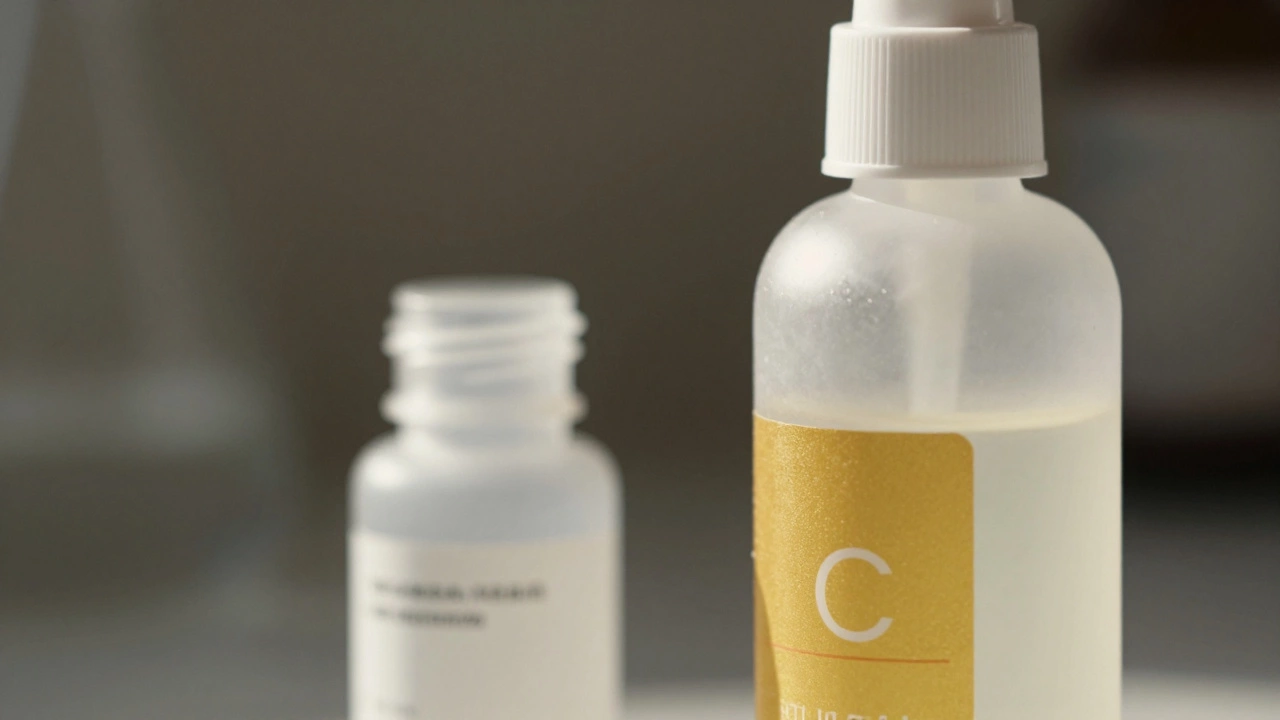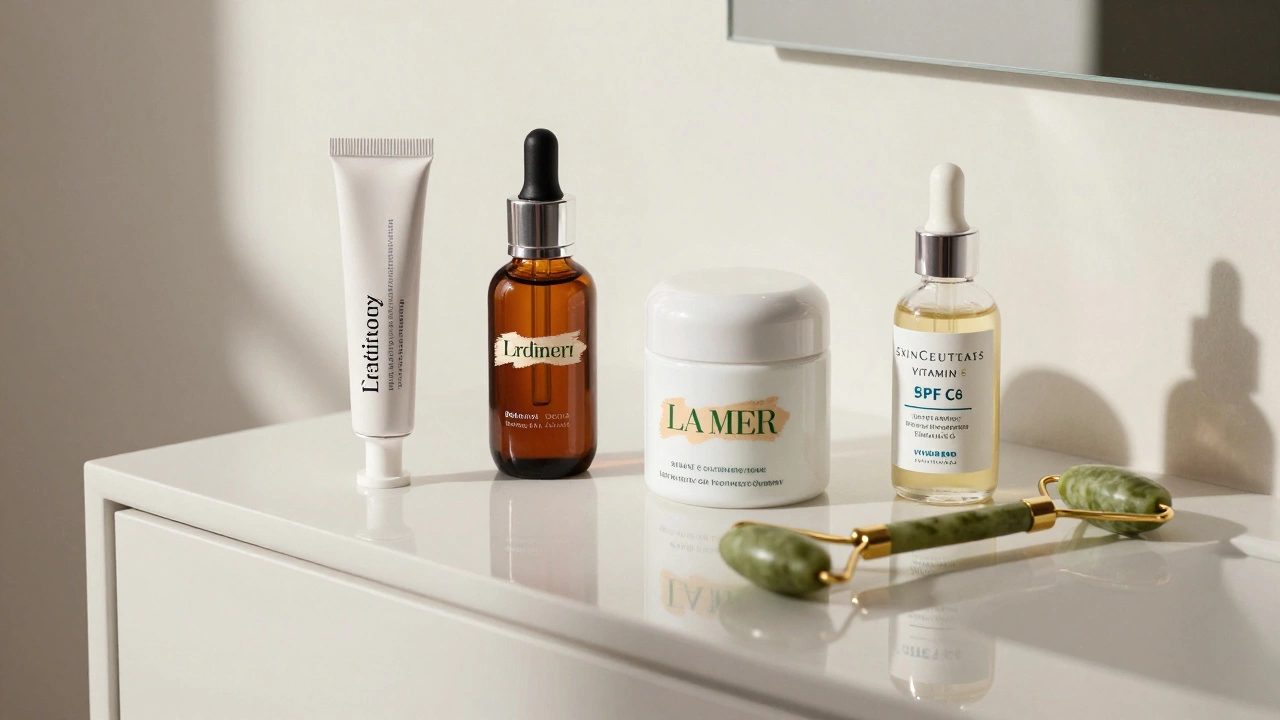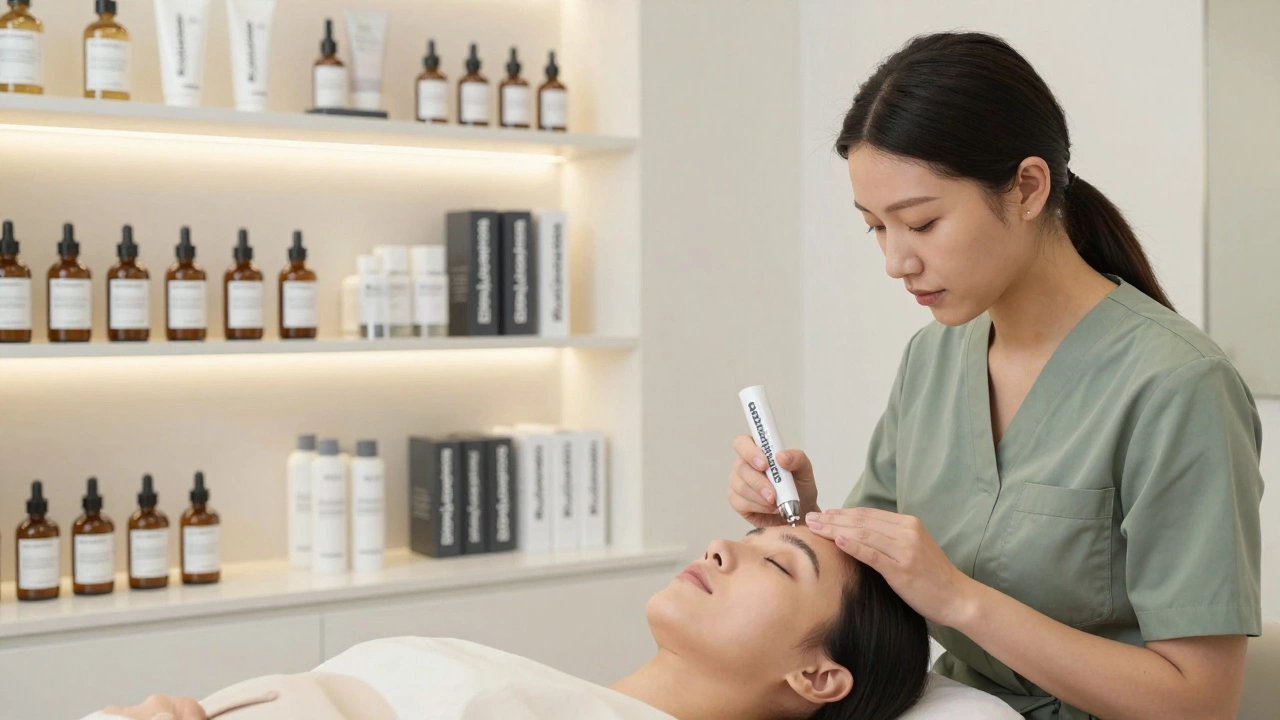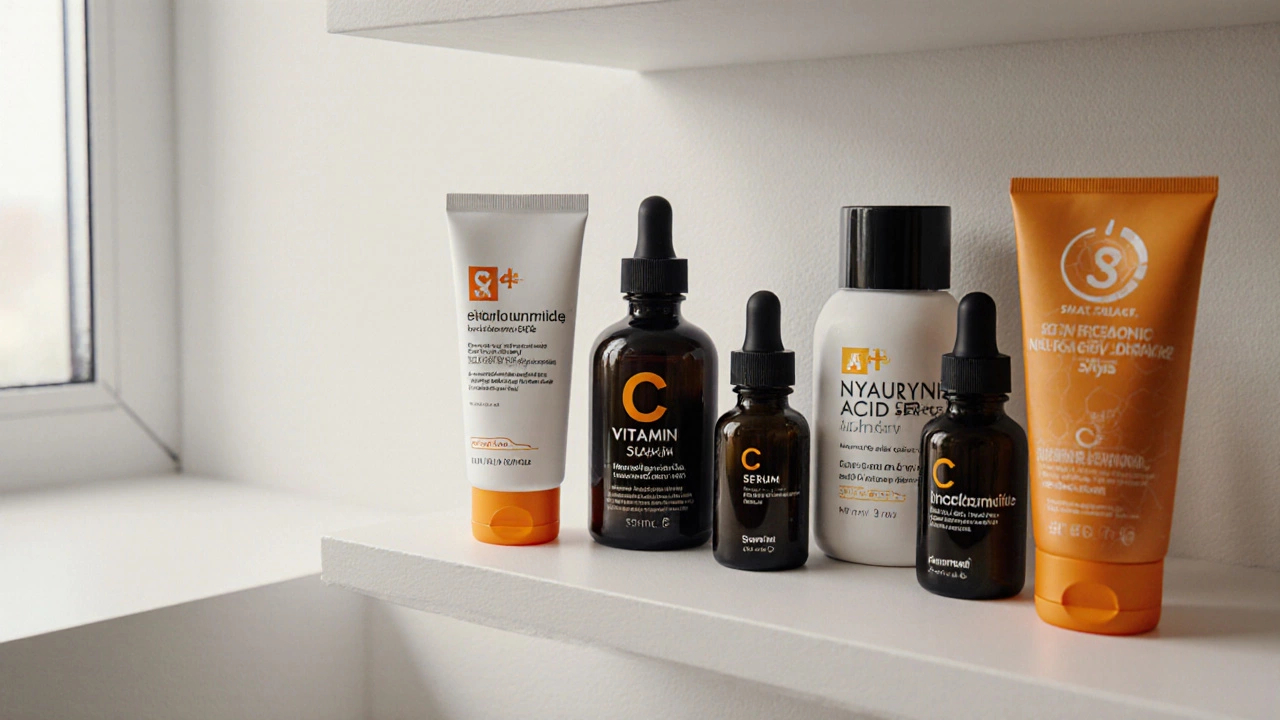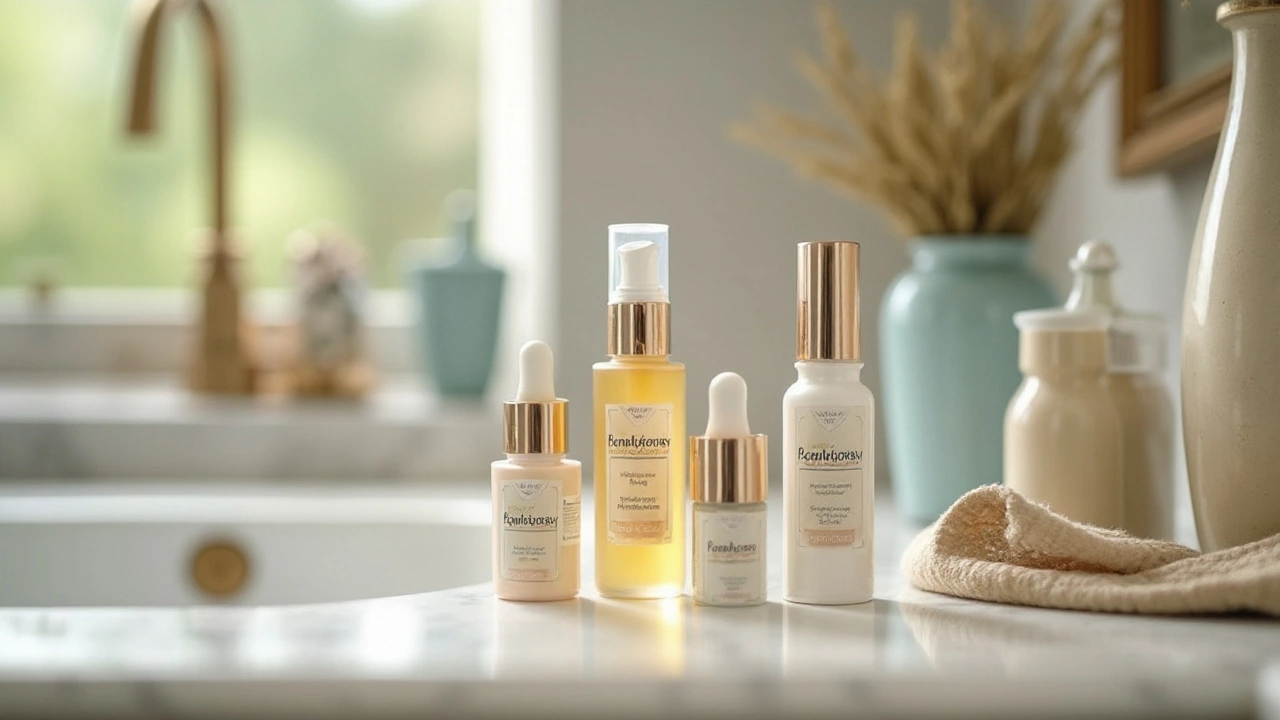Professional Skincare: What You Need to Know
Want skin that looks healthy without spending hours on trial‑and‑error? Professional skincare is all about using products and techniques backed by science, not just hype. Whether you’re dealing with acne, fine lines, or a sensitive complexion, the right professional approach can cut the guesswork and give you real results.
In this guide we’ll break down the core ideas behind medical‑grade products, share quick tips from dermatologists, and show you how to pick the best items for your skin type. No jargon, just plain advice you can start using today.
What Makes Skincare Professional?
First off, “professional” doesn’t just mean pricey. It means the formula is designed to work deeper in the skin, often using higher concentrations of active ingredients that over‑the‑counter (OTC) products can’t match. Think of it like a prescription for your face—still safe, but stronger.
Medical‑grade lines usually undergo more rigorous testing and are frequently recommended by dermatologists. They often contain ingredients like retinol, niacinamide, or hyaluronic acid at levels that actually penetrate the skin’s barrier. That’s why you’ll see clearer results faster, but also why you need to follow usage instructions carefully.
Another hallmark is transparency. Professional brands list exact percentages of actives and avoid vague terms like “natural extract.” This lets you compare products side‑by‑side and know exactly what you’re applying.
How to Choose the Right Products
Start with your skin concern. If you’re fighting breakouts, look for products with salicylic acid or benzoyl peroxide at therapeutic levels. For aging signs, retinol or peptides are your go‑to. Sensitive skin? Choose formulas that are fragrance‑free, hypoallergenic, and contain soothing agents like ceramides or oat extract.
Next, check the concentration. A serum with 0.5% retinol is gentle enough for beginners, while 1% is more aggressive. If you’re new to a brand, start with the lowest effective dose and build up as your skin tolerates it.
Don’t forget the routine order. Cleanser first, then toner (if you use one), followed by treatment serums, and finally a moisturizer with SPF for daytime. Skipping steps can dilute the impact of your professional products.
Finally, read reviews from real users—especially those with similar skin type or concerns. A product might be clinically proven, but if most people with oily skin find it too heavy, it probably isn’t the right fit for you.
By focusing on these basics—active concentration, ingredient list, your skin’s needs, and proper layering—you can build a professional skincare routine that feels straightforward, not overwhelming.
Ready to upgrade your regimen? Pick one medical‑grade product that targets your main concern, introduce it slowly, and watch how your skin changes. Consistency beats occasional splurges, and you’ll notice the difference before you know it.
Why Is Medical Grade Skincare So Expensive? The Real Costs Behind the Price Tag
Medical grade skincare costs more because it’s formulated like medicine-higher concentrations, clinical testing, prescription-only ingredients, and professional-grade packaging. It’s not a luxury. It’s science-backed skin repair.
Do the Kardashians Use Retinol? What They Really Apply for Anti-Aging Skin
The Kardashians use retinol-specifically prescription tretinoin and high-strength retinol serums-as part of a disciplined, long-term skincare routine. Their results come from consistency, sun protection, and professional guidance-not just the product.
Is Dermalogica Medical Grade Skincare? The Truth Behind the Claims
Dermalogica isn't medical grade skincare, but it's professional-grade - formulated with clinical ingredients, used by dermatologists, and free from irritants. Learn why it delivers real results without a prescription.
What Dermatologists Really Recommend for Wrinkles
Dermatologists recommend retinoids, peptides, vitamin C, and sunscreen as the most effective solutions for wrinkles. Professional treatments like Botox and lasers help for deeper lines. Consistency and sun protection matter more than expensive products.
Should You Choose a Dermatologist or an Esthetician for Your Skin Concerns?
Deciding whether to see a dermatologist or an esthetician can be tricky. Dermatologists are medical doctors specializing in skin health, while estheticians focus on cosmetic treatments and skincare routines. This article provides insights to help you choose the right professional for your skin needs, considering factors like specific skin conditions, treatment goals, and personal preferences.
Dermatologists' Top Skin Care Tips for a Glowing Face
Curious about how to keep your face looking fresh and vibrant? Discover what dermatologists recommend for daily skin care. From cleansing methods and hydration secrets to understanding the role of SPF and choosing the right products, this guide offers practical and valuable tips for maintaining healthy skin.
Is CeraVe Medical Grade? Unraveling Professional Skincare
CeraVe, a popular skincare brand, often raises the question of whether it qualifies as medical grade. Understanding what 'medical grade' means is key to addressing this. While CeraVe is not technically medical grade, it is formulated with dermatologist-approved, beneficial ingredients. This article explores the effectiveness of CeraVe and its place in skincare routines.
Top Medical Grade Skincare Lines for Optimal Skin Health
Medical grade skincare lines have become increasingly popular among those seeking effective, science-backed solutions for better skin health. These products are formulated with high-quality ingredients designed to penetrate deeper layers of the skin. This guide explores the best skincare lines that offer medical-grade formulas, supporting various skin concerns such as aging, acne, and discoloration. Learn how these solutions can provide visible results and enhance skin appearance.
The Essential Guide to Buying Medical Grade Skincare Products
Navigating the vast world of skincare can be daunting, especially when it comes to deciding whether to invest in medical grade products. This guide delves into the differences between over-the-counter and medical grade skincare, examining the potential benefits and drawbacks. Discover how these products work, what makes them unique, and whether they are worth the investment for your skin health. By understanding these factors, you can make informed decisions on how to best care for your skin.
Discovering the Top Sensitive Skincare Brand Recommended by Doctors
Sensitive skin requires special attention, and finding the right skincare brand that can cater to its unique needs can be a game-changer. This article explores the top brand that dermatologists and doctors stand by for sensitive skin, offering insights into why it's their go-to recommendation. Learn about key ingredients, the science behind skin sensitivity, and tips on building an effective skincare regimen. Whether you're new to managing sensitive skin or looking to refine your routine, this guide provides practical advice and expert-approved product options.
